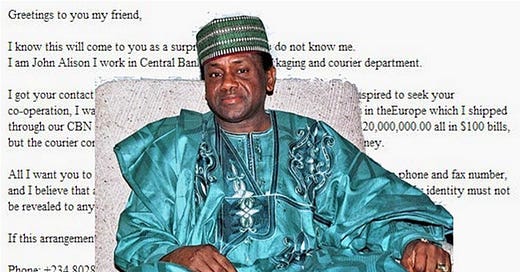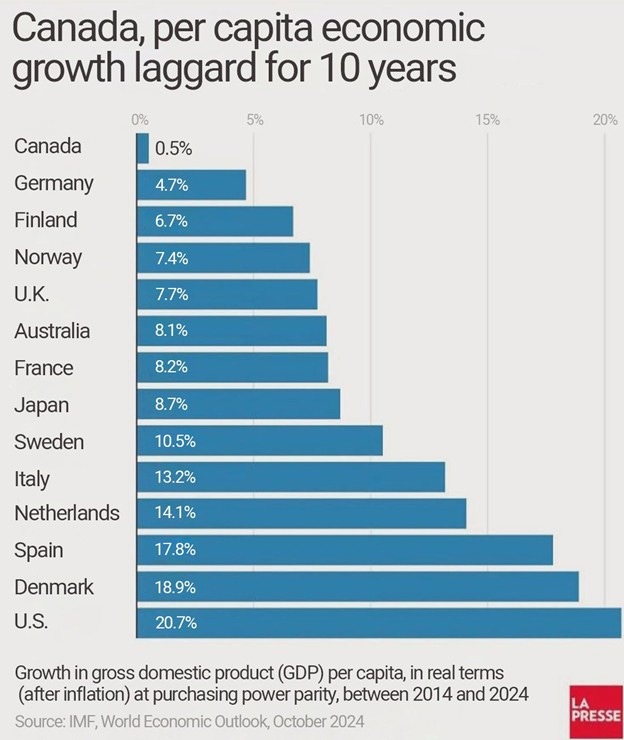A number of “events” have transpired over the last week and a half that have me in a bad mood. Where once I was confident that the Conservatives would win the next election, I am now somewhere between unsure and doubtful. My mood, at least as it pertains to Canada’s future, is somewhere between resignation and despair.
On March 9th the Liberal Party elected former central banker Mark Carney as their new leader and on the 14th he replaced Justin Trudeau as Canada’s Prime Minister. His first act as PM was to sign an order eliminating the consumer carbon tax, the “fuel charge,” effective April 1, 2025. To be clear, this is not an end to the Carbon Tax, just the consumer portion of it, the carbon price on businesses will remain in place to ensure that “Canada’s biggest emitters will contribute their fair share.”
Surely this is good news, right? Eliminating a tax that raises consumer prices must be good. Not so fast. As parliament is still prorogued, Carney didn’t eliminate the tax, he just set the rate to zero. The legislation still exists, which means the rate can be changed in the future so there is nothing to stop him from raising the rate after the next election. This is a show, nothing more.
No, that’s not entirely true. Yes, it’s a show but “nothing more” implies we can ignore it. We must not. While the NDP can be relied on to support progressive policy ideas and the Conservative Party to support…well, conservative ideas, the Liberal Party has shown itself to be less ideologically burdened. To put it simply, the Liberal goal is power, nothing more.
Prior to the 2015 Canadian Federal Election, the Liberal Party, led by Justin Trudeau found itself in a difficult situation. The NDP experienced a surge in popularity, at times surpassing the Conservatives. For instance, an EKOS poll from June 2015 showed the NDP at 29.7%, the Conservatives at 35.4%, and the Liberals at 19.6%. The Liberal’s response was to shift leftward bringing them closer to some traditional NDP priorities. This was a tactical move to appeal to progressive voters who might have otherwise supported the NDP. The NDP responded to the Liberal threat by leaning harder into labor rights and anti-corporate rhetoric, which the Liberals largely sidestepped. This strategy resulted in the Liberals winning 39.47% of the vote, an almost 20% increase over the EKOS poll, while the NDP won 19.72%, a drop of 10%.
Why does this matter?
Despite countless indications that the Liberals have mismanaged the country for a decade, including this one:
Polls now show this:
Many are arguing that this is simply a “honeymoon” effect and that the shine will come of the Carney apple soon enough. I am less certain. The Liberals were pro-mass immigration, pro-carbon tax, and soft on crime until they realized it would lose them the election. The advantage of not having an ideological foundation is you can pretty much take any policy position you want. Believing in things is for losers. Winners believe what the voters believe, what will get them to vote for you. Is it no longer trendy to be a progressive? Fine, we’re conservatives. Care more about the cost of living than you do about the environment. Isn’t that odd, so do we. Think criminals should go to jail? We’ve been saying that forever (for·ev·er – adverb – a very short time).
About 20% of the Canadian population would vote for the Liberal Party if it was led by a potato and sought to repeal the law of gravity. There’s nothing that can be done about these people. The problem is that the average persuadable Canadian isn’t much better. They seem to have the memory of a goldfish and buy into the “we’d never lie” routine so often you wonder how many Nigerian princes they’re currently funding.
There’s a final cause for concern and that’s the Trump factor. Trumps seemingly ceaseless assault on Canada’s economy and sovereignty have enabled many Canadian politicians to appear tough simply by saying they are. It has also had the effect of providing politicians with a foreign threat, distracting Canadians from…well, the domestic ones. Pierre Poilievre, the leader of the Conservative Party has been accused on occasion of being Trump-like. That can’t be a good thing at this moment. Meanwhile Carney can take a firm stance against Trump’s statements and appear strong if not statesmanlike by comparison.
How much of the Liberal bump is due to Trump unifying Canadians and allowing politicians like Carney to appear tough? Hard to say, but I can’t see how this could be hurting Carney.
Conclusion
Pierre Poilievre became the leader of the Conservative Party on September 10, 2022, and has been beating up Trudeau ever since. Despite critiques that he uses too many catch phrases (“Axe the tax,” “Justinflation,” etc.) until very recently this appeared to be a good strategy. I’m starting to worry that his catchphrases may have been too successful. Unless Poilievre can convince Canadians that Carney’s zeroing out of the fuel tax is simply show, that catchphrase is dead. Tying inflation to Trudeau – “Justinflation” – may also turn out to have been a mistake. With Trudeau gone Carney might be successful in arguing that it is a new Liberal Party. The fact that Trudeau didn’t do the damage on his own and that many of his worst cabinet choices, including Chrystia Freeland, who did so much damage as the Finance Minister and former climate activist and building scaler Steven Guilbeault, remain in place, won’t matter if voters believe it was all Trudeau’s fault.
With Trudeau gone the Liberals are poised to repeat their strategy from the 2015 federal election but with the Conservative Party taking the role of their victim this time. The Liberals may “steal” the center-right Conservative policies resulting in the Conservative party coming across as further right than they really are. Is this what will happen? I don’t know. The fact is there’s too much that I don’t know. I don’t know if the polls show real support for the Liberals or simply a short-term honeymoon effect. I don’t know if Canadians will buy the lie that this is a new Liberal Party. I don’t know if Canadians will look back at 10 years of economic mismanagement and punish the Liberals for their incompetence. There is only one think I do know, Canada cannot afford another lost decade under the Liberal government.







Canada has way more than 20% of the population that would vote for a potato.
You are my only window into Canadian politics.